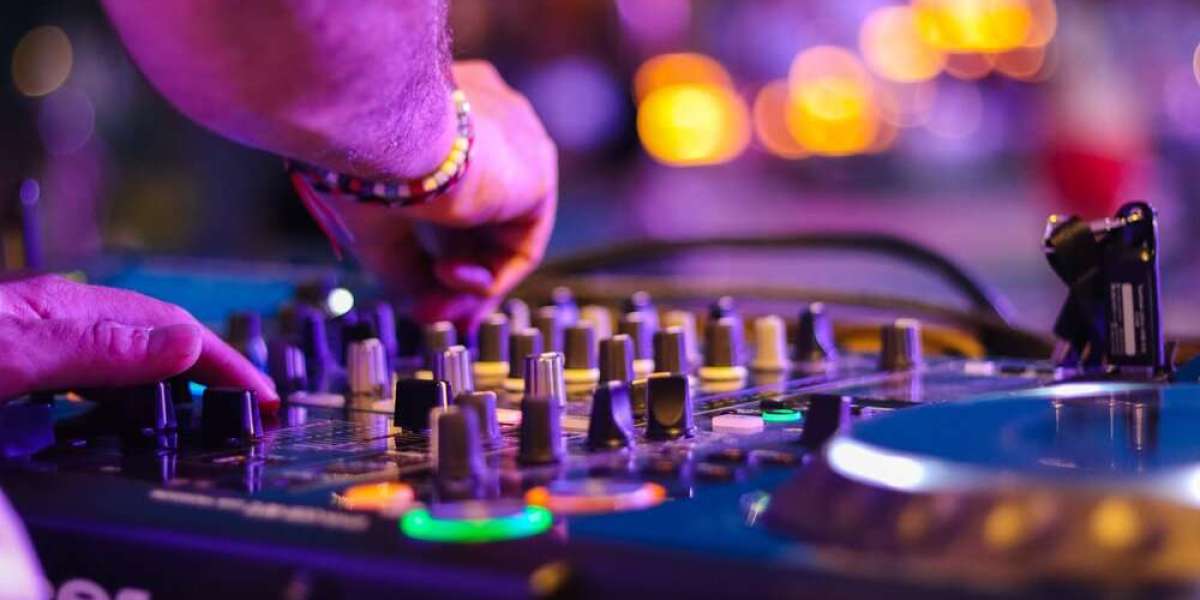Becoming a bar DJ involves more than just spinning tracks—it's about creating the right atmosphere, connecting with the audience, and maintaining the energy throughout the night. If you're thinking about pursuing a DJ career, particularly for weddings and bars, you'll need a blend of technical expertise, musical knowledge, and entertainment skills. Let's delve into the key qualifications and abilities necessary to excel as a bar DJ.
1. Understanding Music and Mixing Skills
A successful bar DJ must possess a strong grasp of music, encompassing various genres, rhythms, and mixing techniques. Weddings typically call for a varied playlist, ranging from slow romantic ballads to upbeat dance anthems. You should be proficient in using DJ software, controllers, and turntables to ensure smooth transitions between tracks. The more seamless the mix, the more enjoyable the experience for your audience.
2. Experience in Live Performances
Performing at a venue is quite different from playing music at home; it demands confidence and an awareness of the crowd. A club DJ is tasked with keeping the audience engaged all night long. Whether you're at a wedding reception or a lively bar, you need to be able to read the room, adjust the tempo, and build energy at the right times. Gaining experience at house parties, small events, or local gigs can help you hone these skills before stepping into a professional environment.
3. Knowledge of Sound Equipment
A DJ's experience is incomplete without top-notch sound quality. Bars and wedding venues often feature different audio setups, so it's essential to understand speakers, mixers, microphones, and amplifiers. Being able to adjust volume levels, balance frequencies, and troubleshoot audio problems can prevent technical mishaps during an event. Additionally, if you bring your own DJ equipment, having the right tools can significantly enhance your performance.
4.Crowd Engagement and Interaction
Bars and clubs featuring live music rely heavily on audience interaction. Unlike a radio DJ who simply plays songs, a wedding DJ needs to actively engage with the crowd. This includes taking song requests, announcing special moments, and energizing the audience. Your skill in connecting with people will play a crucial role in your success. Weddings, especially, call for a DJ who can seamlessly mix smooth transitions with interactive elements, ensuring that guests have a memorable experience.
5. Ability to Adapt to Different Themes
Every wedding has its own unique vibe, and the music should match that atmosphere. Some couples lean towards classic love songs, while others might prefer upbeat dance tracks. While a club DJ might specialize in house or electronic music, a wedding DJ needs to be adaptable. Depending on the couple's tastes, you should be ready to switch between pop, rock, R&B, oldies, and even various cultural music styles. Being flexible is essential for becoming a sought-after DJ.
6. Networking and Promotion Skills
Getting gigs at weddings and bars isn't solely about talent—it's also about how you market yourself. Many local venues that host live music look for DJs with a strong presence, whether that's through social media, word-of-mouth, or online listings. Building a portfolio of past performances, sharing videos of your sets, and networking with event planners can significantly increase your chances of securing more bookings.
7. Professionalism and Reliability
Weddings are special, one-time events, so couples need a DJ they can rely on. Being punctual, well-prepared, and professional will help you stand out. A bar DJ should always arrive early to set up, conduct sound checks, and ensure everything goes off without a hitch. Additionally, having backup equipment and a well-organized playlist will prepare you for any unexpected situations.
8. Licensing and Legal Knowledge
While DJing in a private setting may not require a license, performing at public venues often involves navigating copyright laws. Some clubs that feature live music require DJs to use legally purchased tracks or subscribe to licensed DJ pools. Understanding the legalities of playing music in public can help you avoid legal troubles and build trust with venue owners.
Final Thoughts
Becoming a successful bar DJ involves more than just a passion for music—it requires technical skills, people skills, and a good business sense. Whether you aspire to play at wedding bars, clubs, or private events, mastering these qualifications will pave the way for your success. Stay passionate, continually hone your craft, and before long, you'll be rocking the decks at weddings and vibrant bars!








